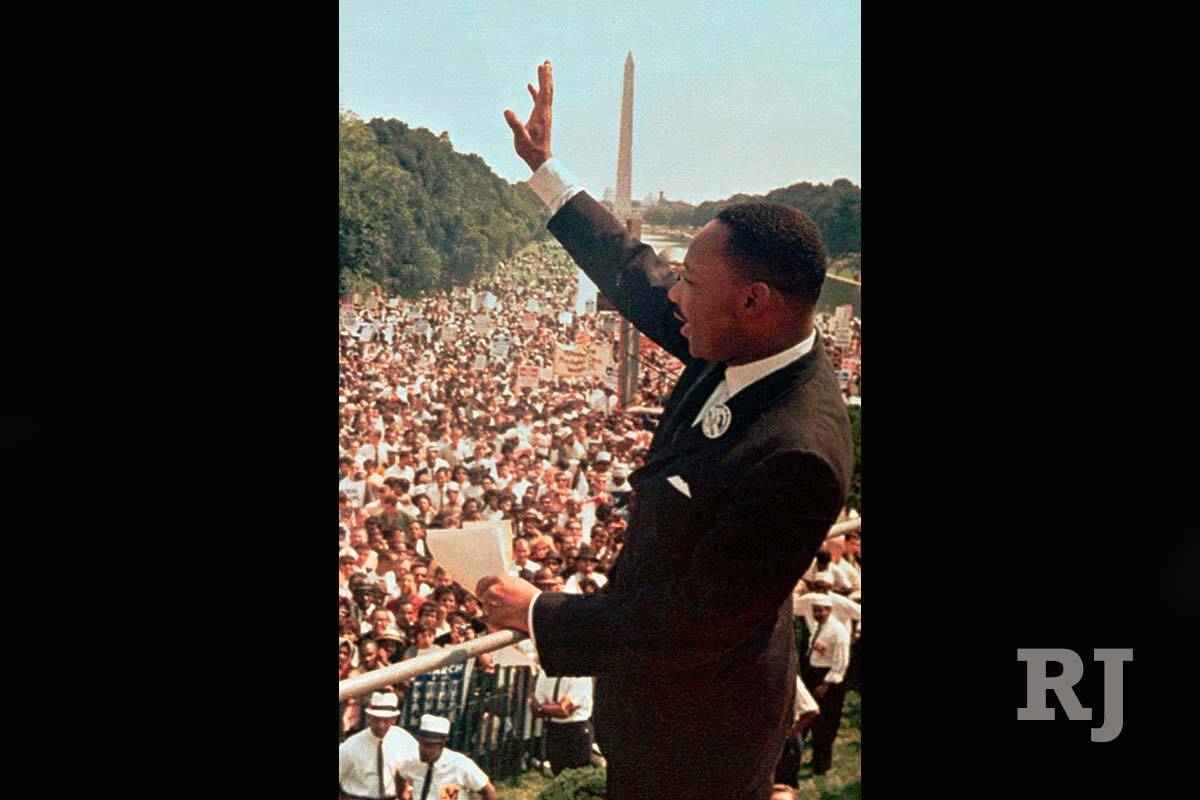EDITORIAL: MLK’s famous dream remains necessary, timely
Even timeless truths will fade from the public mind if there’s not a conscious effort to re-emphasize them. Consider Martin Luther King Jr.’s famous dream.
Monday is Martin Luther King Jr. Day. The national holiday is a tribute to the pre-eminent leader of the Civil Rights Movement. He and countless others worked to eliminate the legalized and shameful racial discrimination that permeated American society a century after the Civil War.
Public school segregation remained legal until the Supreme Court’s 1954 decision in Brown v. Board of Education. Even so, then-President Dwight D. Eisenhower had to use federal troops to escort the Little Rock Nine to their high school. Southern states routinely imposed barriers on Black citizens who wanted to vote. The Civil Rights Act of 1957 authorized federal prosecution of those who tried to keep someone from voting. Yet, discrimination remained commonplace in areas such as bus terminals and lunch counters.
This was the context for the 1963 March on Washington. An estimated crowd of 250,000 people gathered to call for an end to racial discrimination and equal treatment under the law. None did so more eloquently than the Rev. King.
His speech began with an appeal to the country’s founding documents. He referenced “the magnificent words of the Constitution and the Declaration of Independence.” They promised that “Black men as well as white men, would be guaranteed the unalienable rights of life, liberty, and the pursuit of happiness.”
Notice he didn’t seek to tear down America’s institutions. He urged that they be strengthened by living up to the nation’s founding ideals.
“America has defaulted on this promissory note insofar as her citizens of color are concerned,” he said. But “we refuse to believe that there are insufficient funds in the great vaults of opportunity of this nation.”
Toward the end of his speech, he laid out his dream, a “dream deeply rooted in the American dream. I have a dream that one day this nation will rise up and live out the true meaning of its creed: ‘We hold these truths to be self-evident, that all men are created equal.’ ”
He continued, “I have a dream that my four little children will one day live in a nation where they will not be judged by the color of their skin but by the content of their character. I have a dream today.”
The Rev. King’s vision shouldn’t be controversial, even as it serves as a powerful rebuke to those today who stoke racial divisions to advance their agendas.






















